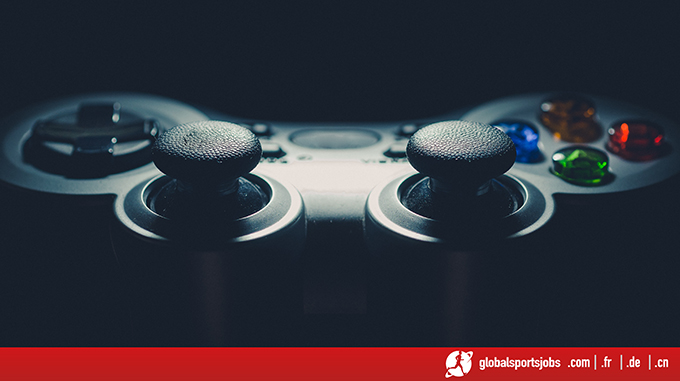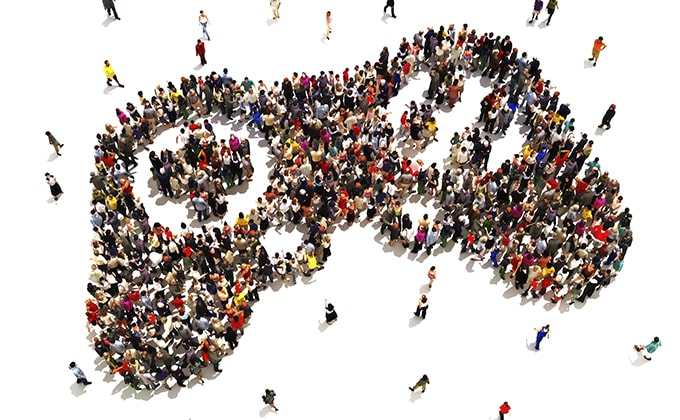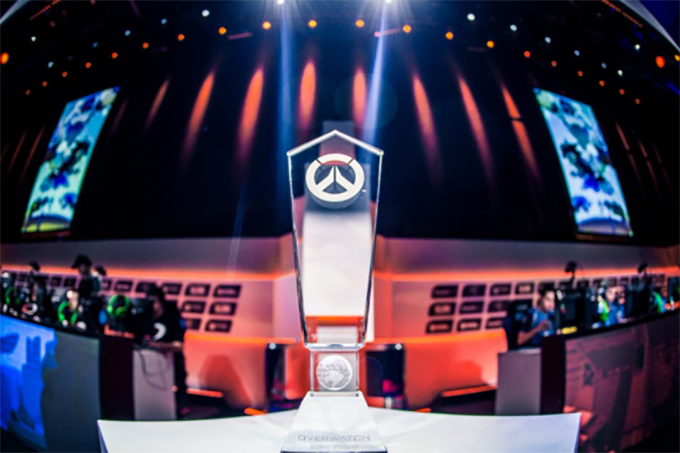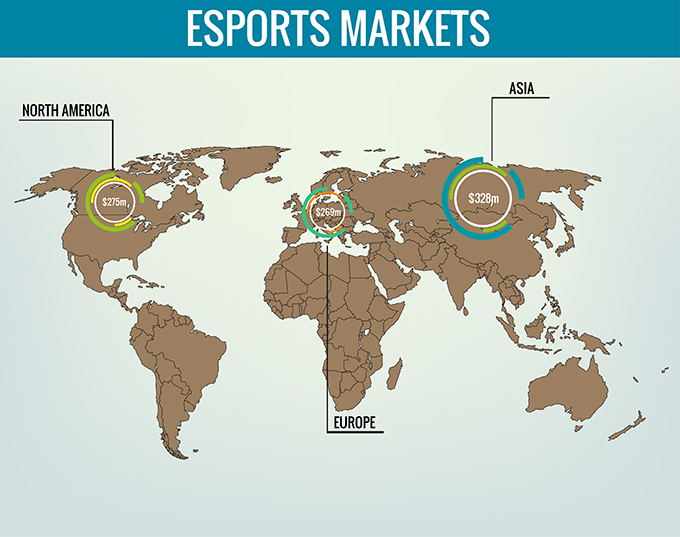Search the latest and greatest job opportunities in sport

The GlobalSportsJobs seasonal series of trends for 2017 continues with an analysis of the burgeoning esports industry. Esports represent a prime opportunity for sports organisations worldwide to access what is evolving into a vibrant industry that is set to pass $1 billion in value by the end of 2017. Find out what to expect from the year ahead.

1. Esports to go mainstream
The biggest technological development in 2017 could see esports going mainstream, following two major announcements in 2016.
First, Activision Blizzard, the world's largest computer-game publisher, revealed that they plan to use their partnership with Facebook to attract new followers by pushing out esports on Facebook's live video platform .
Then came the announcement that the UK is set to get its first 24-hour esports TV channel, with Sky and ITV to take minority stakes in Ginx eSports TV.
At the same time as the Facebook announcement, Activision revealed a series of data improvements to their MLG.tv platform, which will provide detailed information about individual players’ performances and in-game action.
“What really drives the global sports media is personalities and storylines. It’s not about the technical aspect," said Mike Sepso, co-founder and SVP of the company’s Activision Blizzard Media Networks division, who will continue to work with live-streaming video platform Twitch as well as Instagram.
Meanwhile, Ginx TV claim their agreement with Sky and ITV will lead them to become the biggest esports TV channel in the world, since, in addition to the 14 million UK and Irish households, it will be distributed to an additional 23 million globally.
“Esports is experiencing phenomenal growth and Ginx’s vision is to bring together two incredibly popular forms of entertainment – gaming and television – to create a unique, global proposition,” said Simon Pitts, ITV’s managing director of online, pay and interactive.
With esports becoming so popular, 2017 could also see the creation of intercollegiate esports networks and the introduction of esports scholarships at universities as campuses become the home to esports communities.

2. New league to match traditional sport
A new type of esports league is set to launch in 2017 which will be totally different to anything currently running in the genre, but will have similarities to traditional sport.
Blizzard, one of the first video game studios to enjoy success with StarCraft in the late 1990s, has announced plans for the Overwatch League , which will include teams from large cities in North and South America, Europe, China, Korea and the South Pacific.
The idea is to encourage fans to follow those teams and so offer greater merchandising opportunities, but with it will come promotion and relegation to increase interest and drama.
There will also be an off-season. At present esports has a 12-month calendar, but Blizzard has learnt that teams and players would welcome a break, so the Overwatch League is likely to run through the spring and summer, with finals in August.
The other innovative aspect of the Overwatch League is that it will offer players a clear route to becoming a professional, with amateurs being given an annual chance to parade their talents in front of coaches and team owners looking to fill their teams for the following season (as happens in the NFL).
"We're building a league that's accessible to players and fans, sustainable and exciting for everyone involved," said Blizzard president and co-founder Mike Morhaime.
Overwatch could even end up matching League of Legends, the most-watched and highest-grossing esport on the planet. LoL has an average of around 100 million users a month and generates in the region of $740million a year.

3. All change on sponsorship
The signing of two-year contracts last year by three American brands to back the ELEAGUE at $2million a year could signify a change in attitude towards esports sponsorship in 2017.
Arby's, Credit Karma and Buffalo Wild Wings were among the first brands to latch on to the idea that esports presented a major marketing opportunity, with the ELEAGUE targeting a millennial audience.
The total number of consumers worldwide who are aware of esports has now passed the one billion mark , an increase of 36% compared to Newzoo's findings from a year ago. This can only lead to further sponsorship, which would be welcome news for team owners.
Esports' main money-makers are advertisements and sponsorships. They make up around 74% of all esports' value: $660million of the $900million industry.
As teams start appearing on leaderboards and attending popular tournaments, relevant brands take an interest. Indeed, with the continued surge in popularity of esports, expect more non-gaming-oriented brands to jump on board to sponsor teams, players and events.
4. Football clubs to increase interest
Manchester City and West Ham United’s respective signings of Kieran Brown and Sean Allen last summer were the first real indication of interest in esports by Europe's leading football clubs – a trend that will surely grow in 2017.
Both 'Kez' and 'Dragonn', as Brown and Allen are known in the gaming world, are experts on the world's leading football simulation video game, FIFA 16, and although non-sports games such as League of Legends and Counterstrike dominate professional esports, FIFA played both professionally and more informally is also immensely popular. For instance, KSI (or Olajide Olatunji to give the Londoner his full name) has over 15 million subscribers on YouTube and is already a millionaire, even though he is only 22. All that money came from playing video games.
Household names among the burgeoning global esports community include American trio Saahill 'UNiVeRsE' Arora, Peter 'ppd' Dager and Clinton 'Fear' Loomis, who are ranked 1-2-3 in esports' highest overall earners; Pakistan's Sumail Hassan; and Chinese quintet Li 'iceice' Peng, Zhou 'bLink' Yang, Zhang 'y' Yiping, Zhang 'Faith_bian' Ruida and Chu 'Shadow' Zeyu. While new stars emerge in 2017, the leading professional players will attract even more followers when esports goes mainstream.

5. North America and Europe to catch up with Asia
Asia has long been the biggest market in esports, totalling about $328million in value this year, but North America and Europe are catching up fast, with $275million and $269million respectively, and are poised to draw ever closer to Asia in 2017.
In 2016 the French government commenced work on a project to regulate and formally recognise esports, while in the USA and Europe two clubs from the traditional sports of basketball and football have taken over esports teams, having recognised the sizeable business opportunities on offer.
In the USA the NBA's Philadelphia 76ers bought controlling stakes in Team Dignitas and Team Apex , following the example of Bundesliga side Schalke 04, who acquired Elements .
Team Dignitas president Michael O'Dell forecasts further esports purchases by traditional sports clubs: "I think you will see major entrepreneurs and sports millionaires and billionaires begin to take an interest in esports, and investments will gather pace."
This article was written by the GlobalSportsJobs insight team.
Give your career in sport a boost with the latest live vacancies in S ports Marketing , or create an account today and stay up to date with all the latest industry knowledge, events and jobs in sport.
Search the latest and greatest job opportunities in sport